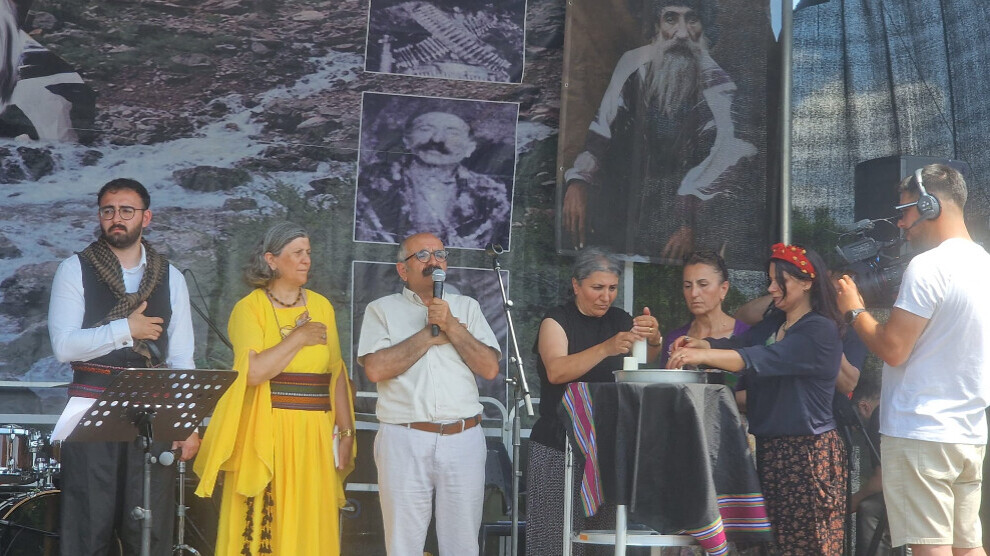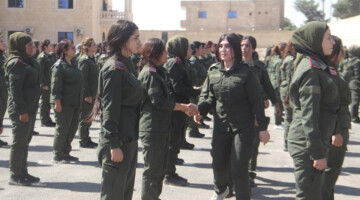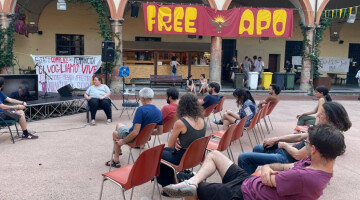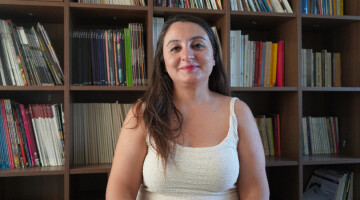The 15th European Dersim Festival in Rebstockpark in Frankfurt was well-attended by numerous visitors from all over Germany and neighboring countries. Under this year's motto “Ma ne Xorasan, ma ne Tunceli – Ma Dersim me!” (“I am neither from Horasan nor from Tunceli – I am from Dersim”), the two-day festival was dedicated to cultural self-affirmation, political reflection, and intergenerational encounters.
The event sees itself as a platform for preserving the cultural identity and historical memory of the Alevi-Kurdish region of Dersim (tr. Tunceli), especially in the diaspora. In this spirit, the festival grounds were decorated with symbols of Alevi culture, historical photographs, book stalls, and culinary specialties from the region.
Kickoff with commemoration and Alevi ceremony
The second day of the festival began on Saturday with a panel discussion entitled “Femicide and religious persecution in the context of women's issues.” Cleric Pir Zeynel Kete opened the festival with an Alevi ceremony, emphasizing the peaceful core values of Alevism and recalling the historical persecution of the Kurdish-Alevi community.
Kete’s speech was followed by traditional dance performances and a musical performance by the group DAKME.
Political speeches: Remembrance and perspective
DEM MP Ayten Kordu focused her speech on the political situation in Kurdistan and Turkey. She praised the PKK's decision to disband and end its armed struggle as a historic turning point. She remembered two fallen founding members of the movement, Ali Haydar Kaytan and Rıza Altun, and said, “Dersim has lost two courageous sons. We remember them with love and respect.”
Kordu went on to call for support for the “Call for Peace and Democratic Society” made by Abdullah Öcalan from prison on February 27, and called on society to join this appeal.
At the same time, Kordu warned against the ongoing violence against Alawites, especially in Syria: “The ideological foundation for religiously motivated massacres has not disappeared; it continues to have an impact today.”
Cafer Oğur: Return to Dersim
Another speech was given by Cafer Oğur, mayor of the Karakoçan district of Elazığ. He described the festival as a place of collective memory and recalled the Dersim genocide of 1937/38, the consequences of which are still felt today: “People are still being displaced from Dersim. The depopulation policy has not ended.” He addressed the young generation in the diaspora in particular: “Turn to Dersim and live there. Let us come together in a free Kurdistan where war and massacres are a thing of the past,” said Oğur.
At the end of the festival, Muharrem Erdoğan thanked all participants and visitors on behalf of the organizing team for their commitment.















